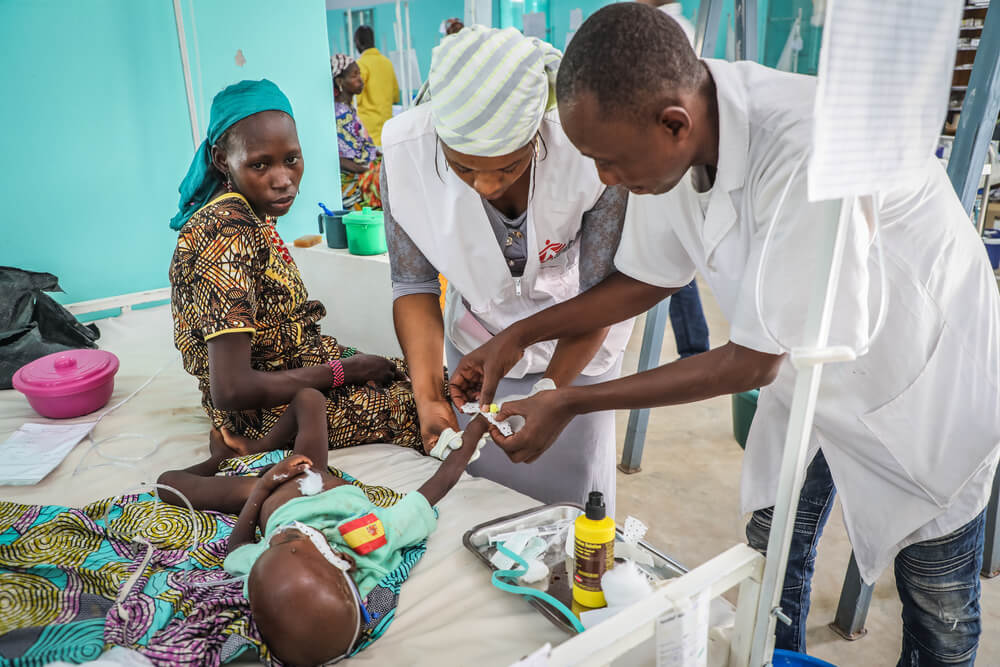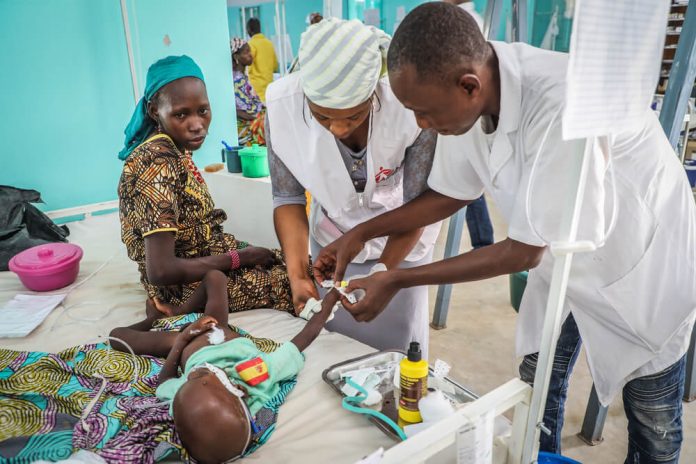
A new Country Health System and Services Profile (CHSSP) from the African Health Observatory Platform on Health Systems and Policies (AHOP) has revealed that Nigeria’s health system is performing at only 45% of its potential, a rate significantly below the African regional average of 56%.
The report, produced by the Nigerian National Centre for AHOP (Health Policy Research Group at the University of Nigeria, Nsukka) with support from the Federal Ministry of Health and Social Welfare and WHO-AFRO, indicates that despite various sector reforms, health outcomes in Nigeria have failed to keep pace with expectations.
The report emphasizes that while there have been some improvements in outputs such as access and quality over the last decade, progress is insufficient to achieve Universal Health Coverage (UHC) by the 2030 target. Core health outcomes, including service coverage, patient satisfaction, and financial risk protection, all remain below regional standards.
A major finding is the catastrophic reliance on personal spending. Out-of-pocket expenditure constitutes a massive 75% of total health spending, placing Nigeria among the highest globally for this metric.
This is exacerbated by the fact that only one in ten Nigerians has access to health insurance or any form of risk-pooling, exposing a large and vulnerable population to catastrophic health costs. Compounding this, the government’s expenditure on health as a share of GDP is among the lowest worldwide.
Infrastructure deficiencies are another critical barrier. Approximately 80% of Nigeria’s health infrastructure is reported as dysfunctional, severely impeding healthcare delivery. This poor state contributes to annual losses of $1 billion U.S. dollars to outbound medical tourism.
Furthermore, private providers, though operating only 35% of health facilities, deliver a disproportionate 70% of all health services.
This highlights extensive service gaps, with the absolute coverage of essential services sitting 1.7% below the African regional average; for instance, only 51% of all childbirths are attended by skilled birth attendants.
The report notes that Nigeria’s health workforce provision, at 3.95 medical doctors for every 10,000 people, is numerically above the regional average of 1.5, yet weak infrastructure and inadequate engagement prevent this human capital from being used effectively.
In conclusion, AHOP identifies sustained underinvestment as the primary obstacle to achieving UHC. Bridging these performance shortfalls will necessitate the effective and robust implementation of key legislative instruments, specifically the National Health Insurance Authority Act 2023 and the 2014 Basic Health Care Provision Fund.



